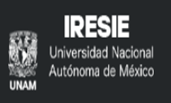Submissions
Submission Preparation Checklist
As part of the submission process, authors are required to check off their submission's compliance with all of the following items, and submissions may be returned to authors that do not adhere to these guidelines.- The submission has not been previously published, nor is it before another journal for consideration (or an explanation has been provided in Comments to the Editor).
Author Guidelines
The journal Trabalho & Educação does not charge any kind of fees for submission and/or publication of authors and the copyright of published works is granted free access; the authors remain entitled to publish in other journals or books, recognized and indicated the authorship and initial publication in this journal.
The journal Trabalho & Educação publishes original works that should be submitted following some basic guidelines and considering, initially, that they should be unpublished and preferably resulting from research.
In the analysis of papers submitted for publication in the journal their unequivocal contribution to the debate of the proposed issues and to the production of knowledge in the field of research in Work and Education will be considered.
When submitting the papers, the authors must indicate the section to which they are submitting, namely: Articles (Dossier and continuous demand), Reviews, Abstracts of Dissertations or Theses, and Interviews. Submissions in the Articles section may have a maximum of 04 authors, and at least one of the authors must have the title of Doctor. At the discretion of the editorial board of the Trabalho & Educação journal, articles submissions may be accepted without at least one doctor provided that all other authors are masters.
Note that, as part of the submission process, the originals must be forwarded exclusively through the journal’s website, in which the author needs to be registered, which can be done here.
After the submission, Editorial Board and the Editors will evaluate the relevance for publication of the paper presented, regarding the adequacy of the profile, the editorial line of the journal and its publication standards, and by ad hoc reviewers, regarding content, quality, and relevance, among other criteria.
If the work is approved for publication, the first author will be notified.
Submissions should follow the guidelines specified below.
__
1st Step
Registration of the author in the electronic system of the journal with the mandatory binding of the digital identifier ORCiD, which can be done here. If you are already registered and have associated the respective ORCiD, access your profile and proceed to submission. To update the registration with the code ORCiD go to: Access -> Profile -> Public -> ORCiD iD -> Save.
ORCiD is a free digital identifier that distinguishes authorship while avoiding the problem of name similarity. Filling out the code ORCiD (Open Researcher and Contributor ID) of each author and co-author of the work is mandatory.
2nd Step
When initiating submission, all authorship identification data must be indicated on the screens that follow.
This data must be entered in the appropriate fields of the submission registration page in the journal, including:
(a) full name of the author or authors (when applicable);
(b) valid email address for contact with the Journal and readers;
(c) brief description of the curriculum (summary of the biography – around four lines, indicating an academic degree and professional performance);
(d) institutional affiliation (full name of institution, city, and state).
Obviously, this data should not appear in the file with the text of the article submitted for evaluation.
The opinions expressed by the authors of the articles are their sole responsibility and the copyright is transferred to the journal for the purposes of printed and electronic publication.
3rd Step
The author must submit, in addition to the document with the text to be evaluated, another supplementary document. Therefore, submission is characterized by sending two separate documents: the text of the article (without the indications of authorship); and an additional document according to the following instructions:
At the beginning of the article text indicate only the titles (Portuguese and English), the abstract/resumo, and the keywords/palavras-chaves, without authorship identification, avoiding any data that can do so, directly or indirectly, throughout the text. A pre-configured template can be accessed and downloaded here and must be used as condition for submission acceptance.
Also in the article text, inform (preferably in footnote):
(i) if it has been previously presented or published at meetings and/or other scientific events;
(ii) if it was evaluated by the Research Ethics Committee (COEP), when applicable;
(iii) if it has funding from funding agencies and which they are;
(iv) if it is the result of research, expressly indicating it.
In the supplementary document, please indicate:
(i) the title of the work and its translation, in English, centralized and how they would be published;
(ii) the full name(s) of the author(s), as they would have been in the published text (SURNAME, name), below the titles and aligned to the right;
(iii) for each author, a footnote stating, at least, the degree/academic education and the institution to which they are linked to and their position in it. When the work is written by more than one author, order them, with the main author first. If another procedure is adopted, explain the reason;
You can access and download here a preconfigured template for the supplementary submission document.
Submissions outside the requested standards for publication delay and greatly impair the editing process, and this for the Journal and the authors themselves. For this reason, submissions that do not comply with the standards requested here – including text formatting in the template available here – will be refused.
The authors should verify the conformity of the submission regarding all the items listed below, in addition to submitting the text observing the appropriate use of language, the use of a clear and coherent writing style in presenting the ideas. A previous, orthographic, grammatical, and norms review is the responsibility of the author.
Guidelines for formatting the works
1. Articles (continuous demand or Dossier)
1.1. Be an unpublished text;
1.2. The articles should be forwarded without indication of authorship and contain:
(i) Title in small capitals (or uppercase), Arial font 12 pt, with a maximum of 100 characters, in the language of the article, and its translation in italics, below, in English, and must express, clearly and accurately, its general content;
(ii) Abstract in Portuguese (or Spanish) and Abstract in English typed in simple space, Arial font, size 10 pt, indicating the objectives, the object, the theoretical framework considered, the type of research/study carried out and the conclusions, with between 800 and 1500 characters, followed, respectively, by three keywords in Portuguese and in English separated by periods;
1.3. The body of the text must have a minimum length of 15 and a maximum of 25 pages, including bibliographic references (only those used in the text) and notes; it should be typed in A4 format pages, with margins of 2.5 cm, using Arial font, size 12 pt, spacing 1.5, paragraphs formatting without indentation and sent/presented in editable electronic file with .doc extension;
1.4. Some items to note when typing the texts:
(i) double quotes should be used for citations, but only in direct quotes in the body of text – do not use them in direct quotations in indented paragraphs; and
(ii) italics should be used for words with unconventional employment and for foreign words, neologisms, and titles of works and publications;
1.5. Notes, citations and references in general should be formatted according to ABNT standards (NBR 6023/2018) and references to authors throughout the text must comply with the following forms:
(i) Author (date) and/or Author (date, paging);
(ii) for authors at the end of paragraphs and literal citations use the forms (AUTHOR, date) and (AUTHOR, date, paging), respectively, as seen in the articles published in the last issue of the Journal, available online;
1.6. The literal quotations above three lines must be formatted in simple space, Arial font, size 10 pt, paragraph indented, and with the appropriate reference indicated at its end, in the format (AUTHOR, date, page) or, if the writing style of the author allows, with the previous indication in the body of the text in the author format Author (date, page);
1.7. For the list of References, at the end of the texts, only those actually used should be listed, typed in Arial font, 10 pt (also the footnotes) and the indication of the works used should be made in bold, as seen in the articles published in the last online issue. Some examples:
Article published in events’ editorials:
PRAXEDES, Luciana Amaral; SOUZA JUNIOR, Hormindo Pereira. A superação do Estado em István Mészáros como prerrogativa para a emancipação humana. In: II Simpósio Nacional Educação, Marxismo e Socialismo, 2018, Belo Horizonte. Anais […] Belo Horizonte: UFMG, 2018. p. 65-85.
Book (complete work):
MENEZES NETO, Antônio Júlio de. Movimentos Sociais e Educação: O MST e o Zapatismo entre a institucionalização e a autonomia. 1. ed. São Paulo: Editora Alameda Casa, 2017.
Chapter published in a book:
ALVES, Antônio José Lopes. A cientificidade Marxiana nos Prolegomená de Lukács. In: VAISMAN, E.; VEDDA, M. (org.). Lukács: Estética e Ontologia. 1ed. São Paulo: Alameda Casa Editorial, 2014. p. 139-168.
Article published in an electronic journal:
CUNHA, Daisy Moreira. Gestão democrática versus autonomia decretada: dilemas atuais na administração da escola pública. Revista Trabalho & Educação, Belo Horizonte, v. 2, n. 2, p. 31-59, 1997. Disponível em: https://periodicos.ufmg.br/index.php/trabedu/article/view/8889. Acesso em 22 out. 2020.
Master’s thesis/doctoral thesis:
OLIVEIRA, Fernanda Márcia Carlos de. A política ambiental da indústria mineral: análises dos programas educacionais construídos para os trabalhadores da Vale na mina Brucutu. 2015. Dissertação (Mestrado em Educação) – Programa de Pós-Graduação em Educação: Conhecimento e Inclusão Social, Universidade Federal de Minas Gerais, Belo Horizonte, 2015.
1.8. Illustrations, photos, graphics, drawings, paintings, tables, and others should be restricted to the absolutely necessary to the text clarity and be located as close as possible to the passage in which they are mentioned; all these elements must be created in black and white, and may not occupy more than 2/3 of a page, in addition to being numbered and titled correctly, with due reference (if reproduced from another source);
1.9. A template/tutorial preconfigured for the submission text must be used and can be accessed and downloaded here.
2. Abstracts of Dissertations and Theses
Abstracts of Dissertations and Theses (and respective translations in English or French or Spanish) may be submitted within one year of the defense. They must be accompanied by their respective keywords in Portuguese and English and preceded by the title and its English translation, have a maximum extension of 4 pages, in A4 format, single paragraph, Arial font, 12 pt, simple space, and margins of 2.5 cm, without indication of authorship and other identification details.
The submission document for Abstracts can be downloaded here.
3. Reviews
The reviews are intended for describing, examining, and judging recent work (no more than 1 year after the launch of the last edition) related to the area of interest of the field of research Work and Education.
They should be elaborated impersonally, containing technical positioning on the object of analysis, followed by a summary of the content and possible demonstration of its importance. Each contribution must follow the same specifications/guidelines for the articles (items 1.1 to 1.9 above) and be between 8 and 11 pages.
The texts should contain the complete bibliographic reference at the beginning; if applicable, title in the original language of the review (Portuguese or Spanish) and in English, name and professional data (institution and title), as well as email address.
4. Interviews
The proposals for interviews must be submitted to the Editorial Committee to be previously analyzed and their relevance for publication in Work & Education evaluated.
GUIDELINES FOR SUBMISSION OF THEMATIC DOSSIER PROPOSAL
Proposal for a thematic dossier may be submitted at the initiative of the Editorial Committee of the Trabalho & Educação journal, which should launch a specific notice containing its preparation standards, or may be presented at the initiative of the academic community, according to the following standards.
The dossier proposal should be forwarded by email: revista.nete@fae.ufmg.br to the Editorial Committee of the Trabalho & Educação journal, which will analyze it according to the scope and policy of the journal.
The dossier proposal shall contain the following information:
– Title of the proposed dossier.
– Name and summarized curriculum of the organizers.
– Summary and brief justification on the proposed theme.
– List with titles and abstracts of the articles that will compose the dossier. Abstracts should contain: presentation of the problem, search procedures, main results, and main references.
– Name and summarized curriculum of the authors of the articles that will compose the dossier.
No proposal will be accepted whose theme has already been published in other dossiers of the Trabalho & Educação journal in the last five years, except in special cases to be evaluated by the editorial board.
The dossier proposal must contain at least 6 and most 10 articles by authors linked to different national and international institutions. At least 2 of these articles must be from foreign authors.
A dossier proposal with more than two (2) authors and/or organizers of the same institution will not be accepted.
The dossier proposal should fit the editorial policy of the Trabalho & Educação journal.
The articles should be clear, coherent, and organic regarding the proposal as a thematic unit.
If the dossier proposal is approved by the editorial board of the Trabalho & Educação journal, the authors must format the articles according to the journal’s submission rules and submit them through the online system, indicating the DOSSIER session for publication, according to the deadlines defined by the editorial board.
The dossier should comprise articles only.
The articles that make up the dossier must comply with the same editorial standards provided for submission via continuous demand.
The articles submitted will be evaluated by the editorial board according to the same rules and procedures adopted by the journal for articles of continuous demand.
The editorial board may request amendments and/or exclusions of articles from the dossier.
The organizers of the dossier should monitor the editorial production of the dossier during all stages, to solve issues related to the review suggested by reviewers, grammatical correction, and standardization of articles, as well as other demands regarding the dossier that arise throughout the process.
The organizers of the dossier should maintain confidentiality during the peer review process, according to blind assessment rules, and ensure compliance with deadlines during the evaluation and publishing process.
The organizers of the dossier will be in charge of preparing a dossier presentation text, which will make up the editorial of the number, and a short text for dissemination on social networks.
The organizers of the dossier and the authors of the articles will not be remunerated by the Trabalho & Educação journal.
__
The Scientific Committee, the Editorial Board, and the Editors reserve the right to suggest changes in the original texts to maintain the homogeneity and quality of the publication, respecting, however, the style and positions of the authors, as well as making minor changes, aiming at maintaining the principles of readability and acceptability of the publication. Likewise, they reserve the right to cancel the publication of approved articles, whose the final revision indicates the need for adjustments and these are not carried out by the authors within the given period.
Authors Quarantine
The magazine Trabalho & Educação does not publish collaborations of the same author(s) in the same edition consecutively. Only after 18 months, we will accept a new submission for a new evaluation process.
Copyright Notice
Os autores têm autorização para assumir contratos adicionais separadamente, para distribuição não-exclusiva da versão do trabalho publicada nesta revista (ex.: publicar em repositório institucional ou como capítulo de livro), com reconhecimento de autoria e publicação inicial nesta revista.Privacy Statement
The names and email addresses entered in this journal site will be used exclusively for the stated purposes of this journal and will not be made available for any other purpose or to any other party.












